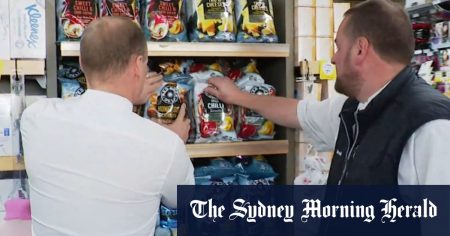The first paragraph of the content discusses memories related to Tupperware and the nostalgia associated with the iconic plastic containers. The writer reminisces about the various Tupperware products such as the ‘square rounds’, ‘seals’, jelly moulds, and lettuce keepers, as well as the lifetime guarantee that came with the products. The writer also mentions the pressure to host Tupperware parties and the miniatures and small kitchen utensils that were given as party prizes. Other readers are encouraged to share their memories of Tupperware products and their experiences.
The second paragraph shifts to a question raised by Jo Rainbow about whether lawyers perform acts of kindness without seeking publicity, and whether pro bono work is truly a selfless act. The writer also mentions U2 fans in passing, implying a connection between lawyers and the band’s fans. This section features a thought-provoking question about the motives behind acts of charity and philanthropy, particularly in professional settings such as law.
The third paragraph highlights a comment by Jack Dikian regarding a travel agency’s promotion of the Bermuda Triangle and the lack of user testimonials supporting the claims made about the destination. This raises questions about the credibility of marketing tactics and the need for authentic feedback from customers. The writer’s observation about the absence of user testimonials adds a layer of skepticism to the travel agency’s promotional campaign.
The fourth paragraph features a witty response by John Hampton Shaw to a query about acquiring a ‘Hampton’, jokingly suggesting that he is already taken by his wife. This playful remark adds light-hearted humor to the content and showcases the writer’s ability to engage with reader queries in a humorous and entertaining manner. The reference to ‘Hampton’ as a potential commodity for acquisition adds a whimsical touch to the conversation.
The fifth paragraph recounts a theatrical mishap during a production of Macbeth at the Marion Street Theatre in the 1970s, where heavy rain and thunder disrupted the performance, causing chaos among the audience and actors. The unexpected expletive from one of the witches further added to the chaotic atmosphere, leading to a memorable and comical incident during the play. This anecdote highlights the unpredictable nature of live performances and the challenges faced by actors and audiences alike.
The final paragraph shares a humorous anecdote from an early production of Julius Caesar by the Sydney Grammar Globe Players, where a smaller ‘stunt corpse’ had to be used instead of the actual actor to represent Caesar’s lifeless body. The audience member’s witty remark about it being a boy adds a comedic element to the situation, showcasing the spontaneity and humor that can arise during theatrical performances. The mention of the writer’s friends, Jim Pollitt and Andrew Cohen, adds a personal touch to the story, creating a sense of camaraderie among theater enthusiasts.














